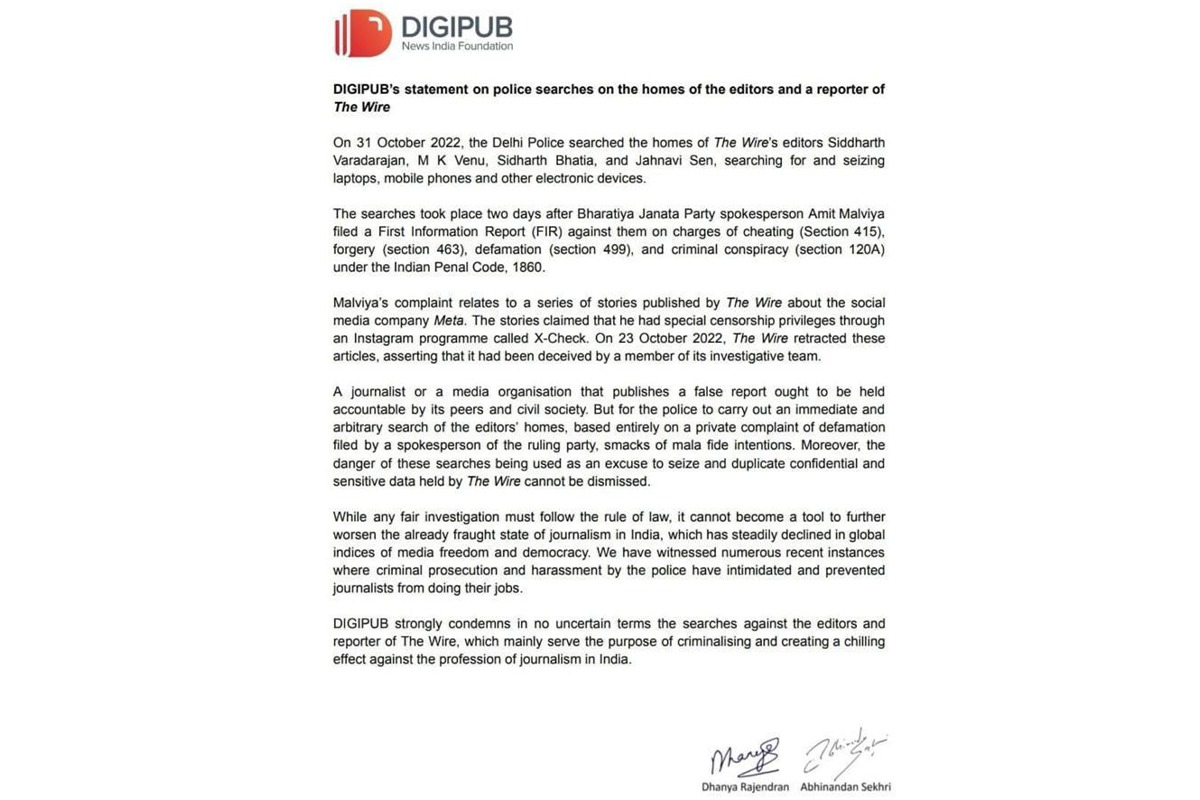The collective of independent digital news portals, DIGIPUB India, on Monday condemned Delhi Police searches in the homes of the editors of The Wire.
The Delhi Police carried out searches at the offices of The Wire and the residences of four of its editors – Siddharth Varadarajan, MK Venu, Sidharth Bhatia and Jahnavi Sen.
The searches were carried out following a first information report was registered against the portal and its editors on charges of cheating, forgery, defamation and criminal conspiracy on the basis of a criminal defamation complaint filed by the Bharatiya Janata Party (BJP) IT cell chief, Amit Malviya.
“A journalist or a media organisation that publishes a false report ought to be held accountable by their peers and civil society. But for the police to carry out an immediate and arbitrary search of editors’ homes, based entirely on a private complaint of defamation filed by a spokesperson of the ruling party, smacks of malafide intentions,” a statement issued by the collective said.
The Wire is one of the members of DIGIPUB, along with various other news portals including NewsClick, News Minute, Newslaundry, Article 14, Scroll, AltNews etc.
DIGIPUB also expressed serious concern over the danger of these searches “being used as an excuse to seize and duplicate confidential and sensitive data held by The Wire.”
The association also expressed concerns that the investigation could become “a tool to further worsen the already fraught state of journalism in India”.
Malviya’s complaint relates to a series of stories published by The Wire about the social media company Meta. The stories claimed that Malviya had special censorship privileges through an Instagram programme called X-Check.
The veracity of the stories was denied by Meta, which alleged that the documents and emails used were “fabricated”. Following this, The Wire retracted these articles on October 23, asserting that it had been deceived by a member of its investigating team.










